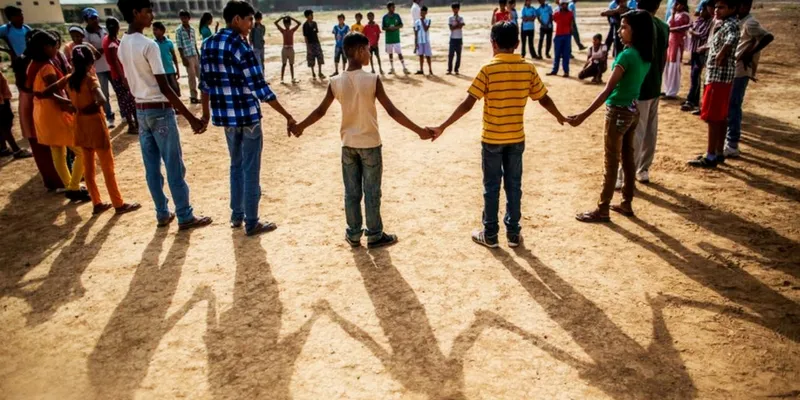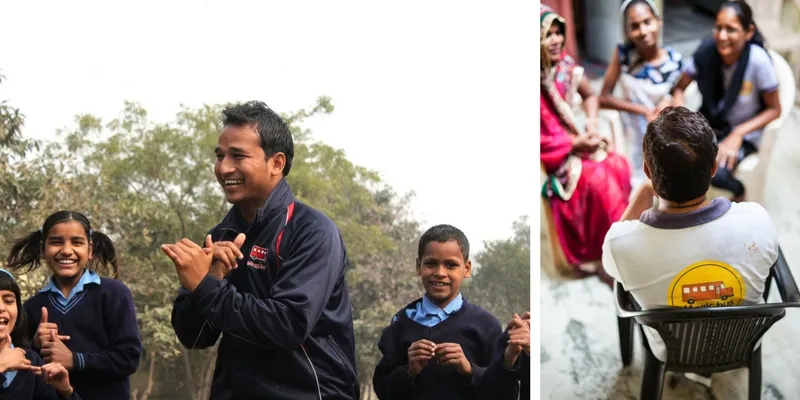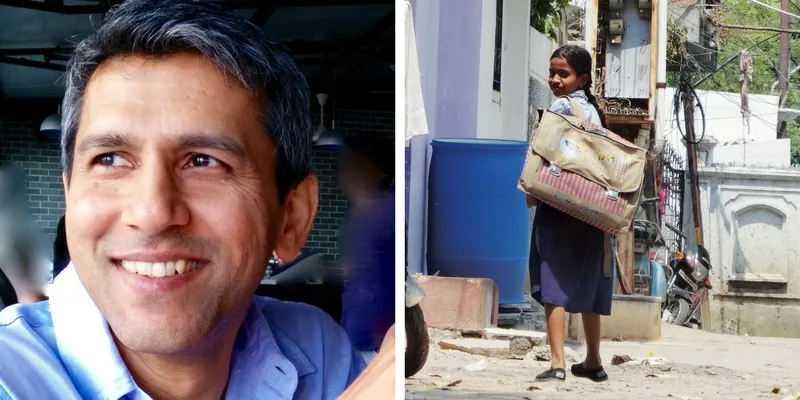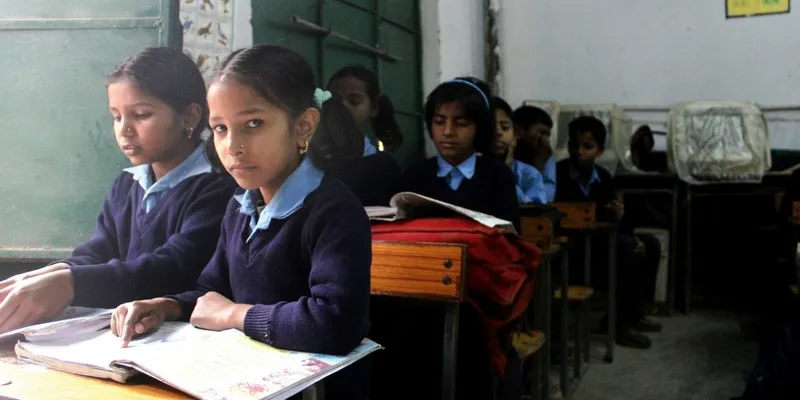From childhood to livelihood: Magic Bus is taking children in a new direction, one child at a time
Magic Bus, which has helped innumerable children and youth break free from the cycle of poverty with a focus on education and sustainable livelihoods, is eyeing international expansion.

The progress a country makes is a direct reflection of its youth and the skills they possess. Sadly, while more than 95 percent of children in India attend primary school, only 44 percent of 16-year-olds complete Class 10. As many as 30 percent of girls in India are married before they turn 18 years old and only 4.69 percent of India’s workforce is formally skilled.
These statistics paint a rather sad picture considering India is all set to become the world’s youngest country with 64 percent of its population in the working age group. This is where Magic Bus and its vision to end poverty for every child and to skill every young person comes in.
As India works towards achieving Sustainable Development Goals by 2030, Magic Bus, in line with contributing to this movement, is committed to fulfilling their goals of zero child marriage, education and livelihood attainment for all.
One man’s dream securing the dreams of lakhs today
It all started when Matthew Spacie, 50, in 1998 began coaching a few children and youngsters on the streets of Mumbai voluntarily in his free time while in the city as the COO of Cox N Kings.
“I realised that the youth needed to get into the formal working sector to learn capabilities and I managed to put them into spaces that came my way as different opportunities,” he says.
But they all dropped out. Very quickly Matthew learnt that the reasons for this varied - from them not having the right skills, the readiness to get into work or the basic level of secondary education.
This troubled Matthew, and after a lot of questioning and research, he put together the first Childhood to Livelihood (C2L) model with the thought that if children were supported during the critical phase of 8-18 years to complete their education and trained with right skills, they would transition into sustainable livelihoods. Matthew planned to take them from childhood to livelihood using the language of sports and activities that children and young people understood and responded to.

That was the beginning of the journey of Magic Bus, a name coined by the same children and youngsters who saw the bus used in during the formative years as a symbol of breaking out of the harsh and dehumanising conditions they were living in.
“We had a physical bus. As the children had no homes, we picked them up and dropped them back from the ground. The name resonated later and stands as a metaphor for the journey of children from childhood to livelihood, breaking the cycle of poverty,” says Jayant Rastogi (51), CEO of Magic Bus.
Impeccable growth over the years
Founded in 1999, Magic Bus is headquartered in Mumbai and works with some of India’s poorest children and young individuals. Some of the first communities they began working with were in Bombay Port Trust (BPT) and Dharavi. Thereafter, Magic Bus has slowly expanded operations and today works in 22 states and 72 districts across the country.
Their early years went into building the foundation of the C2L programme. The idea was to engage children consistently over years through a structured curriculum, using sports and activities that give them the right skills and knowledge to complete secondary education, be gender aware and sensitive, and to overcome the challenging situations they are in.
Magic Bus also works with support structures - parents, the community at large and local institutions - to ensure results in social, emotional and economic well being for all youngsters living in each area.
“Our approach mobilises the entire ecosystem available to the child or youth to create transformational change in their lives. It is augmented by interventions, with parents, communities and the school system, to ensure an enabling environment for this change to happen. We built a strong Monitoring and Evaluation framework to ensure the effectiveness of our programme. In the early years our outreach was limited to Mumbai,” Jayant shares.

In 2007, Magic Bus was chosen to implement at the International Inspiration programme in India, the first international legacy initiative ever linked to an Olympic and Paralympic Games through UNICEF. This helped expand their outreach beyond Mumbai to rural Maharashtra and Andhra Pradesh, giving them an opportunity to create a scalable and sustainable model that continues to be sharpened with each passing year.
A huge milestone was when Magic Bus went through a strategic shift and decided to create more focus on the 12 and above age group in 2016 to be able to take them on a journey to sustainable livelihoods. Ever since, they have expanded to touch the lives of 400,000 children across India. As a part of their programme, over 10,000 trained volunteer mentors known as Community Youth Leaders (CYLs), from the same community as the children, enable a relationship that is close and constant, and work on breaking the poverty cycle, one child at a time. They have also expanded their intervention to Nepal, Bangladesh and Myanmar since 2015.
Tackling the challenges head-on
Magic Bus tasted early success when they realised that sports and activities were great levers for change while working with children and young people. However, this was also their biggest challenge as the outside environment saw this as a fun and “sports” programme. The team had to work consistently to record learnings, showcase impacts and establish the efficacy of using sports and community mentors to address poverty and overcome this roadblock.

With this, the Magic Bus children complete school all the way up to Class 12 while 80 percent of youth on the Magic Bus programme get stable, dignified jobs. Another success: girls on their programme are nearly 100 percent sure of avoiding child marriage and are more likely than their non-Magic Bus counterparts to remain economically self-reliant throughout their lives.
To expand impact
“Though we have created more rigour and depth into our design, what has remained constant within Magic Bus is the passion of working with children and young people living in poverty, and the belief that overcoming poverty is possible. We’re imbued with hope and aspirations and are in the process of adopting innovative technological methods to consolidate and measure impact even further,” Jayant says.

The training function at Magic Bus has just received the ISO certification, and the team is now excited to look forward to the next phase of their growth outside India. They are focused on taking the C2L programme to every corner of the country; they also plan to expand to South East Asia in the first phase of international expansion and to Africa in the next. With this, Magic Bus will be one of the few organisations to take a programme wholly developed in India to other geographies and contexts.
When it comes to impact, Magic Bus want to focus on children completing secondary level of schooling with better learning outcomes and on increasing the benchmark salaries of youth as they move into livelihoods.
“I think all of us have the potential to bring about change. Poverty is our number one challenge. To move children and young people living in India out of poverty each of us has to come together. It doesn’t matter where you are, what you do. It is the intent of making a change that matters,” Jayant ends.
Enter the SocialStory Photography contest and show us how people are changing the world! Win prize money worth Rs 1 lakh and more. Click here for details!







